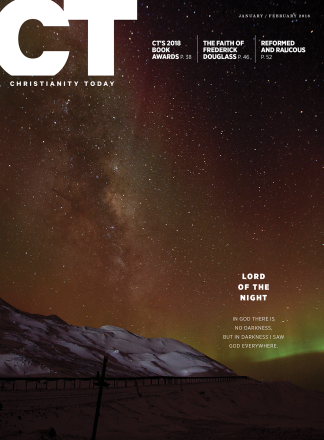In its most populist form, the prosperity gospel conjures up images of Houston megachurches, multi-million-dollar mansions, and pastors with perfect teeth making promises they can’t keep. Beyond the stereotypes, however, we find something far more human and universal: a desire to make sense of pain, suffering, and divine intervention. Kate Bowler, author of Blessed: A History of the American Prosperity Gospel, sees the so-called “health and wealth gospel” as a response to those who want “an escape from poverty, failing health, and the feeling that their lives [are] leaky buckets. . . . It is an answer to the questions that take our lives apart: Why do some people get healed and some people don’t?”
Everything Happens for a Reason: And Other Lies I've Loved
Random House Books for Young Readers
208 pages
$11.98
In her new memoir, Everything Happens for a Reason: And Other Lies I’ve Loved, Bowler, an assistant professor at Duke Divinity School, encounters this nexus point of faith and affliction as she confronts terminal cancer at the age of 35. Her suffering happens in a social context, and as such, Bowler’s book is the memoir of a community. It’s the story of a seminary, of highly revered scholars who sit beside her hospital bed and beg God to prolong her life, of friends who make important phone calls to important people to get her into clinical trials, of colleagues who organize prayer vigils at the campus chapel.
It’s also the story of family. As a mother and a wife, Bowler reckons with the prospect of leaving her husband a widower and her son a motherless child. Silly quotidian habits—like yelling on pitch to the coffee grinder with her toddler every morning—now seem sacred and momentous, altered by the foreknowledge that one day her son and husband will wake up yoked to a burden of grief, and there’s absolutely nothing she can do to ameliorate the pain of that burden. “I am bargaining,” she says of her prayer life.
Although the book reads at times like a letter of goodbye to her friends and family—a forgivable flaw—Bowler writes with the inimitable urgency of someone staring down the gun barrel of a terminal illness. As a scholar who has spent a decade studying Christian “health and wealth” culture, she also brings the sympathy of a self-reflective researcher who understands now more than ever what her subjects really want.
The prosperity gospel offers a pleasingly mathematical system, a “Newtonian universe in which the chaos of the world seems reducible to simple cause and effect,” a transactional guarantee that says, If you do X, Y will be your reward. Your life will prosper. Obedience always begets protection, God’s actions always seem fair, and self-determination and piety always merit blessings.
Rather than condemn it all, Bowler sees herself in each church she studies, each personal story, each prayer: “No matter how many times I rolled my eyes at the creed’s outrageous certainties, I craved them just the same. . . . The prosperity gospel looks at the world as it is and promises a solution. It guarantees that faith will always make a way.”
Naturally enough, she wants a way through her own crisis. She wants solutions. As her health falls apart, however, she gives up the “glorious delusion that sheer willpower [will] make the difference” and comes home to what she already knows: namely, that the “over-realized eschatology” of the prosperity gospel simply distorts true yearnings and true kingdom promises.
As a writer, Bowler has the burdensome task of drawing her story to a denouement without relying on cheap theodicies or pinned-down platitudes (like “everything happens for a reason”—her tongue-in-cheek title). She is traversing that liminal space between earth and heaven—making pilgrimage between two realms—and has a heightened ability, born of pain, to peer out into the endless darkness and make sense of it for the rest of us. Without taking herself too seriously (she’s quite funny, in fact), she wanders through the wilderness of her own uncertain future carried by a deep Christian longing for what lies on the other side of all this suffering, death, and departure: the Promised Land.
In the meantime, our world of pain is met not by answers, says Bowler, but by a deep theology of suffering and an incarnate Christ: “What if rich did not have to mean wealthy, and whole did not have to mean healed? What if being people of ‘the gospel’ meant we are simply people with good news? God is here. We are loved. It is enough.”
This is the gospel promise—prosperity of the heart. And hers, captured in her memoir, is rich indeed.
Andrea Palpant Dilley is an associate editor for Christianity Today.
Have something to say about this topic? Let us know here.











